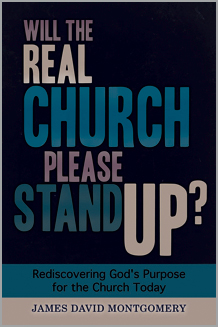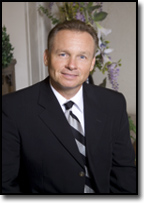Prepare Your Kids For A Great Future
(Eight Things No Kid Should Leave Home Without)
Joe McGee
 In this fast paced world, time alone with our kids at home is limited and before you know it the day arrives for them to move out of the house. Are they ready for what faces them? Quality time loving and getting to know our kids is paramount, but it is also critical to prepare them for living a life on their own.
In this fast paced world, time alone with our kids at home is limited and before you know it the day arrives for them to move out of the house. Are they ready for what faces them? Quality time loving and getting to know our kids is paramount, but it is also critical to prepare them for living a life on their own.
There’s an old saying, "Marriage is forever, children are just passing through." Nothing could be more true. As parents our job is to prepare our children to grow up and leave the nest.
Therefore shall a man leave his father and his mother, and shall cleave unto his wife; and they shall be one flesh. Genesis 2:24 (KJV)
Eighteen years seems like a long time, but it’s really not. Birthdays, Christmas holidays, little league, school plays, piano lessons, vacations, school proms, it moves by so fast. That is why we must make use of the time we have.
In Deuteronomy 6:6-9, Moses gave specific instructions to help parents know how to pass on their faith and their values to their children. The key family times we have are morning time, meal time, drive time, and bed time. This is when we can instruct them about common sense everyday living.
My wife and I will always be Mom and Dad to our kids, and we’ll always have a relationship, but we are preparing our children for something beyond their time with us. As their parents, the most important thing we need to do is to make sure our children are ready to go out into the world and do whatever God has called them to do.
All too often, most young people don’t leave home with what they need to rise above life’s challenges and to reach their full potential. They don’t leave home with what it takes to make it in life.
Every time I’ve read a true success story I’ve noticed something: successful people have certain traits in common. Whether they’ve made their mark in athletics or politics, literature or science, the church or the corporate world, they all posses some of the same characteristics. Some left home with them, some left home without them but they learned to develop these traits in adulthood. They got what they needed from the school of hard knocks. Either way all of them made an enormous impacts on the world.
As I took my oldest daughter and her fiancé through several weeks of pre-marriage counseling I realized I had tried to cover too much. By our last session I simply said, "Every thing I have told you I have reduced to eight things on this 3 x 5 card I am giving each of you. If you will make an effort to apply these eight simple Biblical principles on a daily basis you life will free of many of the hardships that face most couples."
I believe these eight traits enable young people to leave home with an advantage in life. No matter your vocation, ethnicity, religious background, or upbringing, these eight traits will get you somewhere. They will also give you a better standard of living – a godly standard that will bring you His blessings. These eight traits are:
1. A Sense Of Self Worth
Matthew 22:39 (NKJ) You shall love your neighbor as you love yourself.
Ephesians 5:28 (NKJ) Husbands ought to love their own wives an their own bodies; he who loves his wife loves himself.
If you don’t love yourself, your neighbor and your wife are in trouble. You can’t give away what you have not received, and God is the only source of love. Every child deserves the right to leave home born again and a student of the Word. They know that their worth has been settled in heaven.
Humans treat others based on how they feel about themselves. Many leave home with holes in their souls because they don’t know who they are in Christ. They don’t know that they are both loved and accepted in Christ, so they spend their life trying to prove that they deserve love from others. People who don’t like themselves talk about themselves all the time because they need constant affirmation from others. People who do love themselves do so because they know God loves just the way they are. They don’t need affirmation from others, They can walk into a room and be the miracle, not need the miracle.
Low self-worth creates chameleons.
Low self-worth makes you wishy-washy.
Low self-worth invites rejection.
Low self-worth squanders potential.
Low self-worth makes moral pushovers.
Plant self-worth in your kids by teaching them who they are in Christ!
2. A Big Vision
Proverbs 29:18 (NKJ) Where there is no vision, the people perish.
1 Corinthians 2:9 (NKJ) No eye has seen, no ear has heard, no mind has conceived what God has prepared for those who love him – but God has revealed it to us by his Spirit.
God has big plans for everyone. We have to raise our kids to think, "I’m here for something really important. My name may not be in the encyclopedia, but God created me to do something great. Maybe not today, but eventually I’m going to make a mark here on this planet."
Kids don’t just automatically think this way about themselves. As a parent, we have to put that into them. And, if you didn’t get that as a kid, you have to put that into yourself too. How do you do that? You do that by looking into the mirror of God’s Word..
2 Corinthians 4:18 (NKJ) While we look not at the things which are seen, but at the things which are not seen: for the things which are seen are temporal; but the things which are not seen are eternal.
Jeremiah 29:11 (NLT) For I know the plans I have for you, says the Lord. They are plans for good and not for disaster, to give you a future and a hop.
Psalm 139:16 (NLT) You saw me before I was born. Every day of my life was recorded in your book. Every moment was laid out before a single day had passed.
Deuteronomy 30:19 (NLT) Today I have given you the choice between life and death, between blessings and curses. Oh that you would choose life, that you and your descendants might live.
God sent an angel to Gideon not to call him what he was but to call him what he was going to become. We need to speak God’s word over our kids and call them what they are going to become not what they are.
God’s plan for our life is not based on us, it is based on him. It is not based on our GPA, our IQ, or on anything we have done. God looked down through time and saw every sin we would ever commit and still sent his son for us.
Plant a big vision in your child by telling them what God thinks about them.
3. A Love Of Math
Proverbs 24:3-4 (TLB) Any enterprise is built by wise planning, becomes strong through common sense; and profits wonderfully by keeping abreast of the facts.
God is an accountant. Everything he owns is numbered and inventoried, from the days of our lives to the hairs on our head. In heaven we will give an account of every idle word, deed, and thought during our lives.
God is a God of stewardship.
Matthew 25:29 (NLT) Jesus said, "To those who use well what they are given, even more will be given, and they will have an abundance. But from those who do nothing, even what little they have will be taken away."
According to the U S census, 97% of all families have no working budget. People don’t know how much they earn, owe, or own. That maybe why we are the number one debtor nation in the world.
We profit wonderfully by keeping abreast of the facts. We get more of what we take care of. If God does it, we who are made in his image should do it!
Teach your kids a love of math so that they can live an abundant, profitable life when they leave home.
4. Organizational and Time Management Skills
Ecclesiastes 3:1 (NLT) For everything there is a season, a time for every activity under heaven.
Proverbs 90:12 (NKJ) So teach us to number our days That we may gain a heart of wisdom.
1 Corinthians 14:33 (NLT) For God is not a God of disorder but of peace.
1 Corinthians 13:40 (NLT) But be sure that everything is done properly and in order.
Most kids do not do poorly in school not because they are dumb, but because they are disorganized. "Do we need a pencil in this class?" "Is the test today?" Organizational and time management skills should be taught to kids when they are young. We live in a disordered world. Many adults struggle with getting places on time, paying bills on time, remembering important dates, etc. The human brain can only retain so much information.
Children should be taught early to use a calendar, and a watch. They need to be taught to organize their backpacks, their room, their closet, their drawers, etc.. They don’t learn in one day, one week, or one year. Some take longer than others but wee need to be consistent in training them. Don’t yell, call them names, or describe some horrible future but calmly instruct and train every day.
Plant the ability to self-organize and manage their time. They will thank you when they grow up!
5. Teachable Spirit
Psalm 37:11 (NKJ) The meek shall inherit the earth. And shall delight themselves in the abundance of peace.
Matthew 23:12 (NLT) But those who exalt themselves will be humbled, and those who humble themselves will be exalted.
1 Timothy 3:2 (ISV) Therefore an elder must be…teachable.
Proverbs 29:23 (NKJ) A man’s pride will bring him low. But the humble in spirit will retain honor.
Everything I both own and posses is a direct result of doing everything I know. If I hope to ever do more or have more I must learn something I currently don’t know. Teachable people will inherit the earth. We must teach our kids a love of learning. They are not going to be good at everything, only a few things. But, that doesn’t stop them from learning. There is an old saying, " The more I learn, the more I learn I don’t know."
You only get paid for two things on this planet, for what you know or what you can do. If you don’t know more than someone else, or you can’t do more than some else, you don’t get paid more than someone else."
Create in your children a love for learning.
6. Communication Skills
Proverbs 15:2 (NLT) The tongue of the wise makes knowledge appealing, but the mouth of a fool belches out foolishness.
Proverbs 15:28 (NLT) The heart of the godly thinks carefully before speaking; the mouth of the wicked overflows with evil words.
Ephesians 4:29 (NLT) Don’t use foul or abusive language. Let everything you say be good and helpful, so that your words will be an encouragement to those who hear them.
Proverbs 18:21 (NLT) The tongue can bring death or life, those who love to talk will reap the consequences.
Success in life is based largely on our ability to communicate. We might be sitting next to the smartest person in the world but they might not be volunteering any information. And, all wars, divorces, and affairs begin with words. The book of Proverbs is an entire course on communication, what to say or not say, when to say it or not say it. Have your child read a Proverb every day and it will change the way they talk.
Matthew 12:34-35 (NLT) For whatever is in your heart determines what you say. A good person produces good things from the treasury of a good heart, and an evil person produces evil things from treasury of an evil heart.
Children learn mainly how to communicate by listening to us. Just something to think about!
7. Character
Proverb 22:6 (NKJ) Train up a child in the way he should go, when he is old he will not depart from it.
Ephesians 6:4 (NLT) Fathers, do not provoke your children to anger by the way you treat them. Rather, bring them up with the discipline and instruction that comes from the Lord.
Character is revealed by what you do when no one is looking. The problem is that someone is always looking. God is looking, the devil is looking, angels and demons are looking. Teach your children to do right because it is right to do right.
Nobody gets away with anything. In 1 Timothy 5:24 (ISV) we read, "The sins of some people are obvious, going ahead of them to judgment. The sins of others follow them there." And, in Numbers 32:23 (NLT) we read, "your sin will find you out."
Teach you children that there is profitability in godliness but the wages of sin is death. Do, say, and act right because it is right!
8. Sense of Humor
Proverbs 15:13 (NKJ) A merry heart makes a cheerful countenance. But by sorrow of the heart the spirit is broken.
Proverbs 17:22 (NKJ) A merry heart does good, like medicine, but a broken spirit dries the bones.
Nehemiah 8:10 (NLT) Don’t be dejected and sad, for the joy of the Lord is your strength.
Teach you kids how to laugh and no take life so serious. Nobody wants a pickle face for a friend. Nobody wants to be married to a pickle face. People love people who make them laugh. We need to bring our laughter with us. "Today is the day the Lord has made, we will rejoice and be glad in it! Psalm 118:24.
It is said that the most common trait among the most successful businessmen in a strong sense of humor.
All of life has its challenges but we should be enjoying the process most of the time. Jesus said he came to bring a rich and satisfying life! John 10:10 (NLT)
Jesus prayed, "Father, let my joy be manifested in them!" Jesus wants us to have homes of laughter and homes of Joy! People remember what they laugh at.
Lets teach our kids the joy of living!
There they are, eight principles that will enhance your family’s life. Lets live it to the fullest!




 Of the many issues that we help our church and ministry clients with, benevolence is in my view one of the toughest areas to deal with as it is hard to tell if a need is valid or not. It is unfortunate that this area is so difficult to navigate because it is clearly a direct calling of the church by the teachings of the Bible. My title of this article mentions the many “nuances” and clearly this short article won’t be able to cover all of them, for sure, but I will focus on one particular nuance of benevolence.
Of the many issues that we help our church and ministry clients with, benevolence is in my view one of the toughest areas to deal with as it is hard to tell if a need is valid or not. It is unfortunate that this area is so difficult to navigate because it is clearly a direct calling of the church by the teachings of the Bible. My title of this article mentions the many “nuances” and clearly this short article won’t be able to cover all of them, for sure, but I will focus on one particular nuance of benevolence. Charlie Daniels is the President and CEO of Churches by Daniels. He has over thirty years of construction experience. As a pastor’s son, Charlie Daniels embodies the heart of a pastor. He knows the daily pressures that pastors have to deal with, and has a heart to serve them. That is what Churches by Daniels is all about. Each employee has to have that same heart in order to work here. From the top to the bottom we care about pastors and believe it is our duty and call to build churches.
Charlie Daniels is the President and CEO of Churches by Daniels. He has over thirty years of construction experience. As a pastor’s son, Charlie Daniels embodies the heart of a pastor. He knows the daily pressures that pastors have to deal with, and has a heart to serve them. That is what Churches by Daniels is all about. Each employee has to have that same heart in order to work here. From the top to the bottom we care about pastors and believe it is our duty and call to build churches.
 Building a church is not an easy undertaking! There are many steps to this process, and often times we see churches getting hung up in the beginning stages, which prohibits them from ever getting to actually build their new building. One of the areas that can cause a church problems up front is purchasing property. It is difficult to know what makes a piece of land the right or wrong property for the church to buy.
Building a church is not an easy undertaking! There are many steps to this process, and often times we see churches getting hung up in the beginning stages, which prohibits them from ever getting to actually build their new building. One of the areas that can cause a church problems up front is purchasing property. It is difficult to know what makes a piece of land the right or wrong property for the church to buy. The term “private inurement” is not one to be thrown around lightly and can conjures up images of extreme financial fraud in the church and ministry environment – i.e. extravagant personal spending, cars, travel, etc. In reality, I fear that inurement is more common in churches than one might expect and is as simple as using church or ministry funds for a purchase that is personal in nature, providing no benefit or serving no ministry purpose. More importantly, inurement is really in the eye of the beholder, as inurement could be alleged by the IRS or by a congregation member even if a transaction has the appearance of impropriety or lacks sufficient documentation to substantiate what actually took place.
The term “private inurement” is not one to be thrown around lightly and can conjures up images of extreme financial fraud in the church and ministry environment – i.e. extravagant personal spending, cars, travel, etc. In reality, I fear that inurement is more common in churches than one might expect and is as simple as using church or ministry funds for a purchase that is personal in nature, providing no benefit or serving no ministry purpose. More importantly, inurement is really in the eye of the beholder, as inurement could be alleged by the IRS or by a congregation member even if a transaction has the appearance of impropriety or lacks sufficient documentation to substantiate what actually took place. I will speak prophetically ONLY as God speaks.
I will speak prophetically ONLY as God speaks.  “Laughter is as good medicine.” That’s what the Bible says, and it’s true. Well, at least, it’s supposed to be.
“Laughter is as good medicine.” That’s what the Bible says, and it’s true. Well, at least, it’s supposed to be. In this fast paced world, time alone with our kids at home is limited and before you know it the day arrives for them to move out of the house. Are they ready for what faces them? Quality time loving and getting to know our kids is paramount, but it is also critical to prepare them for living a life on their own.
In this fast paced world, time alone with our kids at home is limited and before you know it the day arrives for them to move out of the house. Are they ready for what faces them? Quality time loving and getting to know our kids is paramount, but it is also critical to prepare them for living a life on their own. Paul and Maria Foslien were married in 1989 and served on the mission field in Belarus for three years before founding Living Word Family Church in Naples, Florida
Paul and Maria Foslien were married in 1989 and served on the mission field in Belarus for three years before founding Living Word Family Church in Naples, Florida To our Western minds, the right to vote may seem like a God-given right that everyone has always enjoyed. But the truth is, countless people throughout the history of mankind and multitudes around the world today don’t have the right to vote. People in the Roman Empire during New Testament times never even imagined the possibility of casting a vote to change the course of government. They couldn’t elect a new emperor or select their senators, proconsuls, and court justices. They couldn’t determine governmental policies by voting. Politicians at that time were appointed or inherited their position due to noble birth.
To our Western minds, the right to vote may seem like a God-given right that everyone has always enjoyed. But the truth is, countless people throughout the history of mankind and multitudes around the world today don’t have the right to vote. People in the Roman Empire during New Testament times never even imagined the possibility of casting a vote to change the course of government. They couldn’t elect a new emperor or select their senators, proconsuls, and court justices. They couldn’t determine governmental policies by voting. Politicians at that time were appointed or inherited their position due to noble birth.  In
In  There is no greater sound than when the people of God come together in unison and worship Jesus. Praise and worship is a supernatural experience. Miracles happen, issues of the heart are dealt with, and sinners come to repentance in an atmosphere of godly worship. The Bible says God inhabits the praises of His people (see Psalm 22:3) — and there’s nothing quite like having God “invade” your praise and worship!
There is no greater sound than when the people of God come together in unison and worship Jesus. Praise and worship is a supernatural experience. Miracles happen, issues of the heart are dealt with, and sinners come to repentance in an atmosphere of godly worship. The Bible says God inhabits the praises of His people (see Psalm 22:3) — and there’s nothing quite like having God “invade” your praise and worship! While my wife Renee and I were visiting Washington DC in 2011 we came across this quote on the National Archive building:
While my wife Renee and I were visiting Washington DC in 2011 we came across this quote on the National Archive building: The dynamics of choice and decision have always fascinated me. The realization that an individual can literally make or break their life as the result of their decisions is quite sobering. When one considers the fact that the choices they will make today will determine the quality and standing of their life in ten, twenty, or thirty years, the power and effects of those decisions becomes crystal clear. Author Richard Bach said, “Some choices we live not only once but a thousand times over, remembering them for the rest of our lives.”
The dynamics of choice and decision have always fascinated me. The realization that an individual can literally make or break their life as the result of their decisions is quite sobering. When one considers the fact that the choices they will make today will determine the quality and standing of their life in ten, twenty, or thirty years, the power and effects of those decisions becomes crystal clear. Author Richard Bach said, “Some choices we live not only once but a thousand times over, remembering them for the rest of our lives.” Dean Hawk is the senior pastor at Rock Family Church in Colorado Springs, CO. He has served in the full-time ministry over the last 27 years in various capacities. Prior to starting Rock Family Church in 2004 he served as youth pastor, associate pastor, Bible college instructor, and conference speaker. He has also authored 14 volumes of H2O Sermon Source. Each creative and illustrative sermon comes with a teaching outline, Power Point presentation, handout, and small group guide. Dean’s success in ministry can be summed up in one word: creativity. He believes it is a sin to be boring in church which motivates him to continually seek the Lord for new and creative ideas to reach people with the good news! Check out their H20 web-site at
Dean Hawk is the senior pastor at Rock Family Church in Colorado Springs, CO. He has served in the full-time ministry over the last 27 years in various capacities. Prior to starting Rock Family Church in 2004 he served as youth pastor, associate pastor, Bible college instructor, and conference speaker. He has also authored 14 volumes of H2O Sermon Source. Each creative and illustrative sermon comes with a teaching outline, Power Point presentation, handout, and small group guide. Dean’s success in ministry can be summed up in one word: creativity. He believes it is a sin to be boring in church which motivates him to continually seek the Lord for new and creative ideas to reach people with the good news! Check out their H20 web-site at 

 Stan Saunders serves as lead pastor of Cornerstone Church in Chillicothe, Missouri, a large and growing church reaching hundreds of adults and young people in the small towns and rural communities of Northern Missouri. He has conducted conferences for pastors and church leaders in several countries throughout Africa, Asia, Central and South America.
Stan Saunders serves as lead pastor of Cornerstone Church in Chillicothe, Missouri, a large and growing church reaching hundreds of adults and young people in the small towns and rural communities of Northern Missouri. He has conducted conferences for pastors and church leaders in several countries throughout Africa, Asia, Central and South America. 

 David Huskey is a Rhema Graduate and has pastored 10 years in Taos, New Mexico and has ministered through radio, television, news publications, and served as an instructor of Bible School in Pensacola, Florida for 5 years. He has traveled for over 16 years and continues to travel the United States and abroad, teaching the Body of Christ how to “Overcome Offenses” and how to “fulfill their destiny in Christ”.
David Huskey is a Rhema Graduate and has pastored 10 years in Taos, New Mexico and has ministered through radio, television, news publications, and served as an instructor of Bible School in Pensacola, Florida for 5 years. He has traveled for over 16 years and continues to travel the United States and abroad, teaching the Body of Christ how to “Overcome Offenses” and how to “fulfill their destiny in Christ”. Story of ministry leader leaving and why:
Story of ministry leader leaving and why: Easter represents a time of new beginnings. Easter is really the biblical feast of First Fruits. It was on this day Jesus was raised from the dead and become the first fruits of God.
Easter represents a time of new beginnings. Easter is really the biblical feast of First Fruits. It was on this day Jesus was raised from the dead and become the first fruits of God. 